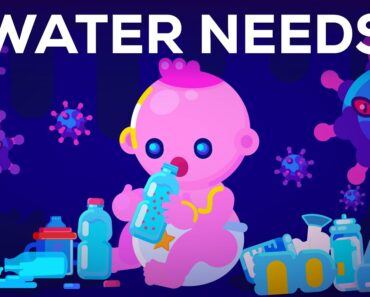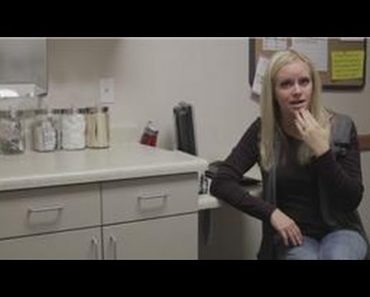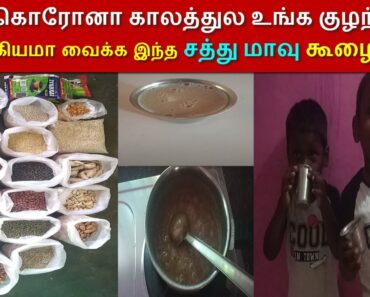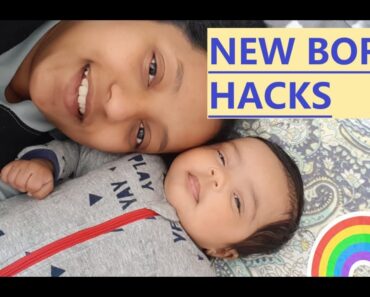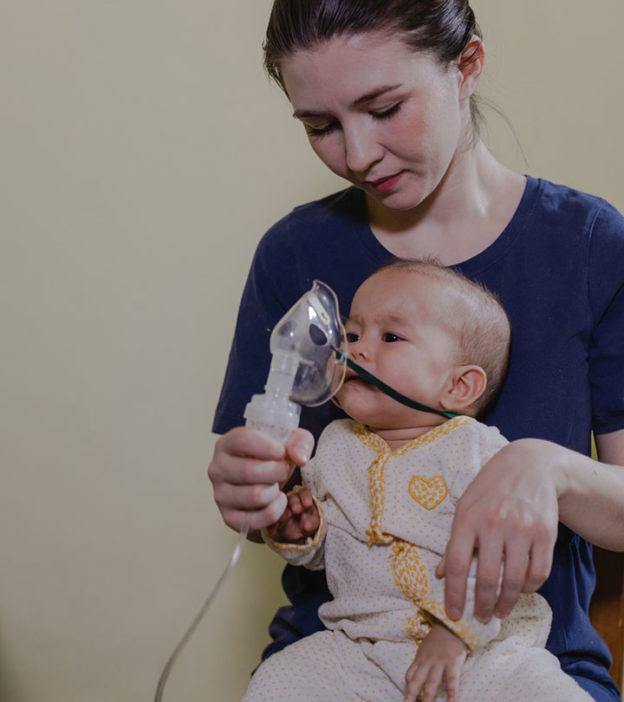
Noticing your baby wheezing can be distressing, but not all wheezing should worry you. Around 50% of children may experience an episode of wheezing in the first year of life, according to one study (1). Wheezing may be a sign that there is an obstruction in the airways. The severity and cause of this obstruction will determine if there is any need for worry. A baby’s body is still developing, and various aspects related to an infant’s anatomy make them more prone to wheezing (2).
However, knowing all there is to know about wheezing in babies may help you find comfort and the tools to help your child. Keep reading for more information on the causes, remedies, and types of wheezing.
What Is Wheezing In Infants?
Wheezing is a high-pitched whistling or purring sound that your baby makes when breathing. It is caused by obstruction of the airways between the larynxiXPart of the throat that contains the vocal cords and plays a role in talking and breathing and the distal bronchioles. The obstruction could be due to tightening of muscles in the airways, swelling of the mucosal lining, excessive amounts of secretions, or inhaled foreign body (3).
A wheezing sound usually comes from obstruction in the lower airways if the underlying condition is asthma and upper respiratory airways in case of tumors (4).
Studies say that around 30% of children experience wheezing when they get a respiratory infection before they turn three (3).
Quick fact
Is It Normal For Babies To Sound Wheezy?
Babies may sound wheezy for many reasons, and not all may be of serious concern. However, wheezing is not normal in children or adults and may be a symptom of other conditions, so determining its cause is important. For instance, a common cause for wheezing in babies is bronchiolitis, a viral infection that is usually mild and may resolve on its own, but it can get serious.
A wheezing sound accompanied by other symptoms such as high fever or difficulty breathing in your baby may require further investigation.
Also, children’s airways are softer and narrower than adults so they can make different noises when breathing (5).
What Do Different Types Of Wheezing Mean?
The different types of wheezing can be categorized based on various factors such as pattern, length, frequency, and pitch. Below are some major categories of wheezing.
1. Expiratory or inspiratory
Your baby will usually make a wheezing sound while exhaling and rarely while inhaling. This is because the airways normally become narrow when you exhale, and this also points towards the obstruction in the airways being milder. If there is wheezing when your baby exhales and inhales, it could suggest that there is severe narrowing of the airways (6).
2. Monophonic and polyphonic
Wheezing has also been categorized based on the nature of the sound into polyphonic and monophonic.
- Polyphonic (PP) wheezes are those that have multiple frequencies or notes, while those with a single note are called monophonic (MP) wheezes. The former is usually caused by the narrowing of a single bronchiole, while the latter is caused by the narrowing of multiple central bronchioles.
- PP wheezes are related to small airways and may indicate COPDiXChronic obstructive pulmonary disease that leads to chronic obstruction of the lungs’ airways , while MP wheezes involve larger airways and may point toward asthma (7).
3. Wheezing types based on pattern
- Episodic wheeze: When a baby wheezes intermittently and during a time period. The wheezing often accompanies a viral cold and stops between episodes.
- Multitrigger wheeze: Wheezing during and between episodes, and not necessarily from viral cold.
4. Wheezing types based on duration
- Transient early wheeze: When a newborn starts wheezing and only stops after they turn three years old. This kind of wheeze may suggest that the baby has a smaller airway.
- Intermediate wheeze: Wheezing that starts when a baby is between 18 and 42 months old and continues till later childhood. It is associated with allergic sensitization and hypersensitivity.
- Late-onset wheeze: Infrequent wheezing in babies between 6 and 42 months of age that becomes more frequent at 42 months and continues till the baby is six years old. This wheeze is strongly associated with skin and nose allergies.
- Persistent wheeze: Wheezing begins after six months of age or later. This kind of wheezing is further divided into two subgroups — nonatopiciXNot triggered by allergens persistent wheezing phenotype and IgE-associated atopic and/or persistent wheezing phenotype. Nonatopic persistent wheezing phenotype is associated with viral infections (8).
What Are The Causes Of Wheezing In Babies?
Wheezing is caused by any form of obstruction in the airways and can result from a number of diseases or conditions.
- Bronchiolitis: A common cause of wheezing in children under two years, bronchiolitis is an infection caused by a virus called RSV (respiratory syncytial virus). Often starting with a fever and runny nose, your child may start coughing and experiencing breathing difficulties as the infection worsens (9). Other infections such as croup, pneumonia, or laryngitis may also cause wheezing in babies.
- Asthma: An inflammation of the airways that causes them to become narrow and hyperactive. This can lead to increased mucus production, which can make breathing difficult (10). For children below five years of age, asthma is the most common cause of recurrent wheezing (2).
- Anaphylaxis: It is a severe form of allergic reaction to any allergen. This outside agent or allergen can be food, dust, pollen, or insect bite, which can induce wheezing or other reactions such as shortness of breath, swelling of tongue, and rashes. It can be confused with an asthma attack when the wheezing is accompanied by shortness of breath. One way of differentiating it from an asthma attack is to find out if the wheezing happened soon after eating or drinking something, being bitten by an insect, and any change in the environment.
- GERD: Gastroesophageal reflux or GERD is a condition where stomach acids flow back into the esophagus. Sometimes, the stomach acids may flow into the windpipe, causing wheezing and pneumonia (11).
There are other causes of wheezing which are rare such as foreign body inhalation, congestive heart failure, vocal cord dysfunction, and tumors (4).
Quick fact
How Is Wheezing In Babies Diagnosed?
A common ailment, mild wheezing may go away on its own, but severe or persistent wheezing may suggest an underlying condition or disease. Diagnosis is important to provide the appropriate treatment.
- Auscultation: The oldest technique used for diagnosing respiratory illnesses, auscultation involves using a stethoscope to listen to the lungs. It is also used to diagnose conditions related to other organs in the body. A doctor may listen to your child’s wheezing with a stethoscope to determine its cause (12).
- Chest X-ray: Auscultation will usually be all that is needed to diagnose the cause of wheezing in your baby. However, if the doctor suspects other reasons, they might advise a chest X-ray to look for a foreign body or a lesion in the central airway.
- Pulmonary function testiXNon-invasive tests that measure lung volume and capacity and rate of airflow and gas exchange or lung function test: If your doctor suspects asthma to be the reason behind the wheezing, a pulmonary function test might be required.
- Allergy tests: Your doctor may also ask for allergy tests to be done to rule out any possibility of your baby’s wheezing being an allergic reaction.
- CT scan: In rare cases where a tumor is suspected to be causing wheezing, a CT scan of the chest may be required (4).
Did you know?
What Is The Treatment For Wheezing In Babies?
Treatment for wheezing depends on the underlying cause. However, there are some home remedies or actions you can take to help your child feel better.
1. Humidifier or warm mist
Dry air can worsen a cough, so using a humidifier in the room may help your baby breathe more easily. You could also get your baby to breathe warm steam by running the shower in a closed bathroom.
2. Provide ample hydration
You could serve your child warm, clear fluids, such as homemade broth and juices if they are older than six months. Fluids will hydrate the baby and loosen up the phlegm and soothe the airways. For infants between 3-12 months, you can give 1 ounce of fluid up to 4 times a day. Children over the age of one year may be given more fluids.
3. Honey
Honey can loosen coughs and thin mucus, but you should only give honey to your child if they are older than a year. You may give ½ to 1 teaspoon (2-5 mL) of honey as needed.
4. Nasal saline
Saline nose drops may be used to help moisten dried nasal mucus. You can also use just water if you cannot find saline water. Apply a few drops of saline into your baby’s nose, and using a bulb syringe, you can suction out the mucus. You should do this no more than four times a day if your child is less than a year old.
5. Smaller feedings
Give your child small and frequent feeding because they do not have the energy when wheezing.
6. Avoid exposure to tobacco smoke
Inhalation of second-hand tobacco smoke makes breathing difficult for a baby and worsens wheezing (13). Do not take the baby to places where they are likely to inhale tobacco smoke.
What Is The Medication For Wheezing?
If wheezing is the only symptom, doctors may usually keep the child under observation and investigate potential underlying causes. The following medications may be suggested based on the diagnosed cause.
- Bronchodilators: The most commonly used drug used to treat wheezing, bronchodilators have been shown to be effective in treating acute wheezing in children younger than two years (8).
- Steroids: Corticosteroids are used to treat asthma and wheezing in infants. Systemic or oral corticosteroids are ingested and travel through the body to treat the inflammation, while inhaled or intranasal corticosteroids reach the inflammation site directly.
- Antileukotriene: A drug that targets the presence of high amounts of leukotriene in the blood that causes bronchoconstriction (14). It has been known to be effective against mild to moderate cases of wheezing.
When To See A Doctor?
While mild wheezing may resolve with time, there are a few markers to watch out for if your baby is wheezing. You should take your child to a doctor in case of the following (13).
- Your baby starts to wheeze shortly after having an insect bite, taking medicine, or eating something they could be allergic to.
- Your infant is having severe, troubled breathing.
- Your baby has fainted or stopped breathing.
- Your baby’s lips or face has turned bluish.
- Your baby recently choked on an object or food.
1. Can mucus in the throat cause wheezing?
Yes, excessive mucus production in the throat can further narrow the airways causing wheezing (16).
2. How long should wheezing last in babies?
Wheezing caused by a respiratory infection should improve in 2-3 days, with mild wheezing lasting up to a week (9). However, if there are accompanying symptoms such as high fever, difficulty breathing, or if your baby looks very ill, you should take your baby to a doctor.
3. Does wheezing mean lung damage in babies?
Wheezing is caused by an obstruction in the airways of the lungs, so if it does not go away in 2-3 days or worsens significantly and is accompanied by other symptoms, lung damage may be a possibility.
There are different types of wheezing and varying reasons behind your baby’s wheezing, such as a viral infection, asthma, GERD, or an allergic reaction. Treatment for wheezing will, therefore, depend upon the particular underlying condition. Timely diagnosis can determine the underlying cause and lead to the initiation of treatment, reducing the risk of long-term lung problems or complications (17) (18).
Key Pointers
- Wheezing is a high-pitched whistling or purring sound that your baby makes when breathing.
- It is caused by obstruction of the airways.
- Severe or persistent wheezing may suggest an underlying condition or disease.
- Children’s airways are softer and narrower than adults so they can make different kinds of noises when breathing.

